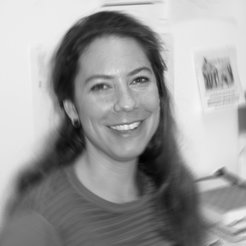Interview with Susanne Wessendorf
(The London School of Economics and Political Science)

Susanne Wessendorf is Assistant Professorial Research Fellow in Ethnicity, Race and Equity at the International Inequalities Institute, The London School of Economics and Political Science.
For further information click here.
What does ‘diversity’ mean to you by way of your work and field of expertise?
Diversity points to the increasing complexity of current societies. As this complexity is constantly changing, the term diversification is more useful as it points to this state of flux and change. Most work on diversification relates to societies shaped by migration movements. For my own work, the term ‘diversity’ has been useful in thinking about a variety of categories of diversification, including for example socio-economic and educational backgrounds, legal statuses, religious believes, gender, ethnicity and nationality, among others.
Do you think the term ‘diversity’ just a Zeitgeist term – a post-multiculturalism policy catch phrase (as in ‘integration and diversity’ policy), a corporate tool maybe (as in ‘diversity management’), or can it be a concept that can help structure and advance social scientific analysis?
The term diversity is all of the above: a Zeitgeist term, a policy catch phrase as well as a corporate tool. However, it can also be a concept which helps us think about societal complexity and ongoing changes due to the movement of people. It can help structure scientific analysis by way of including the above-mentioned categories in our analysis. One of the important contributions of much work on diversity/ diversification has been the move away from focusing on specific ethnic groups, an approach prevalent within the field of multiculturalism and race relations studies, and to not privilege one social category over another. In regards to my own ethnographic work, the ‘diversity lens’ has helped me let categories of differentiation emerge through empirical work and seeing what kinds of differences make a difference in what kinds of situations in people’s lives and in their interpretation of the societal changes around them. I think it is crucial to use this kind of emic approach to analyse what kinds of tensions as well as solidarities can emerge in societies which go through sometimes rapid population changes. One of the most fruitful social scientific approaches we can draw on in regards to such questions of exclusion and inclusion is work on boundary making, with a long tradition in anthropology and sociology (e.g. Fredrik Barth and more currently Andreas Wimmer).
From the perspective of your intellectual tradition, what are a few of the key empirical, theoretical and/or methodological challenges currently facing ‘diversity’-related research?
One of the main challenges in regards to diversity related work is the continuous focus of much research on ethnic, racial and religious differences despite long-term scholarly criticism of ethnic essentialism. These categories continue to prevail much research (including my own) on diversification. One of the reasons for this is the continued dominance of categories of ethnicity, race and religion in both public discourse as well as among research participants living in areas characterized by diversification. Again, work on boundary making might help us move away from this focus and disentangle what other categories might be prevalent in people’s interpretation of the social world around them and it what kinds of situations this is happening.
Interviewer: Chris Kofri
